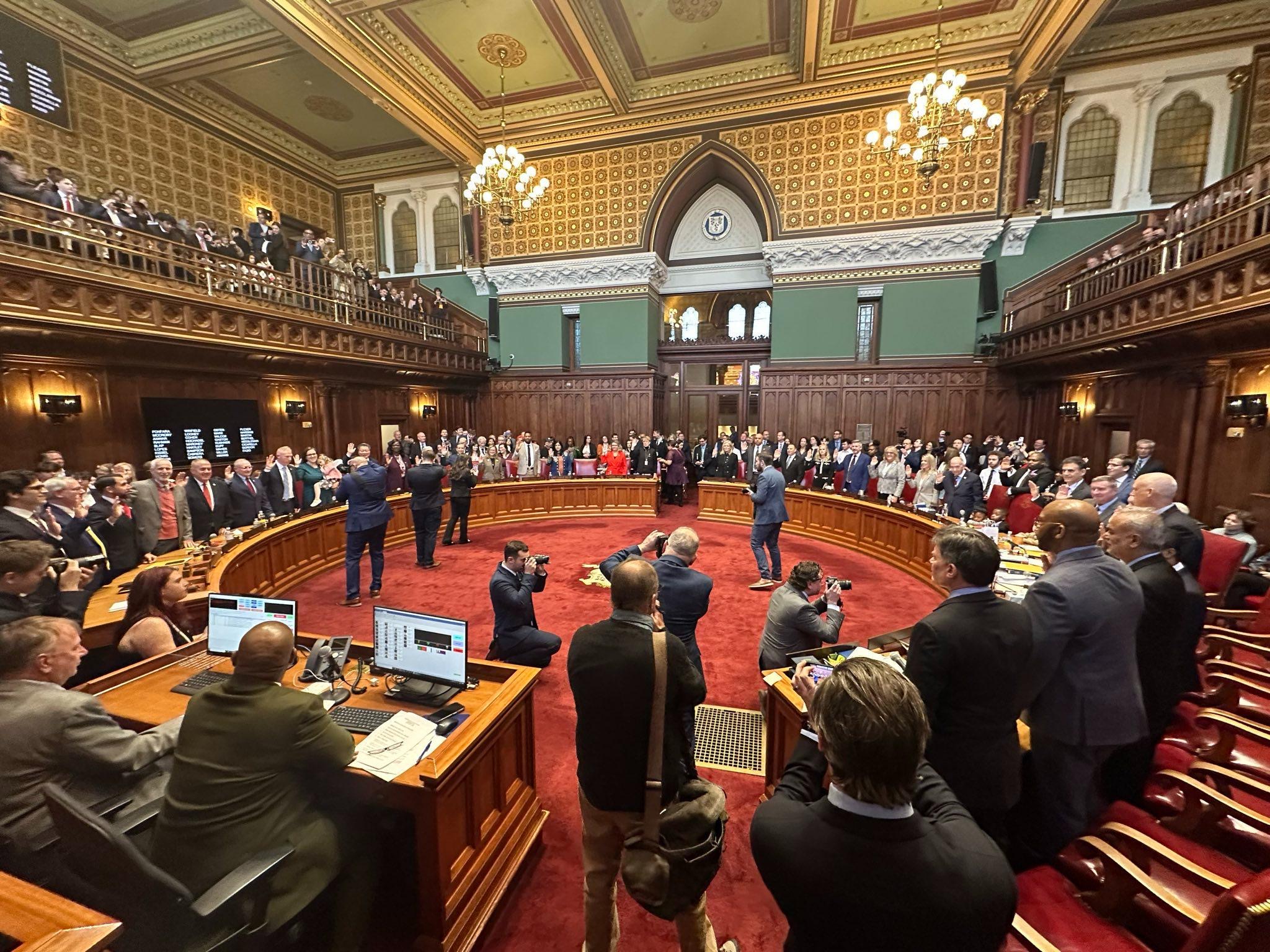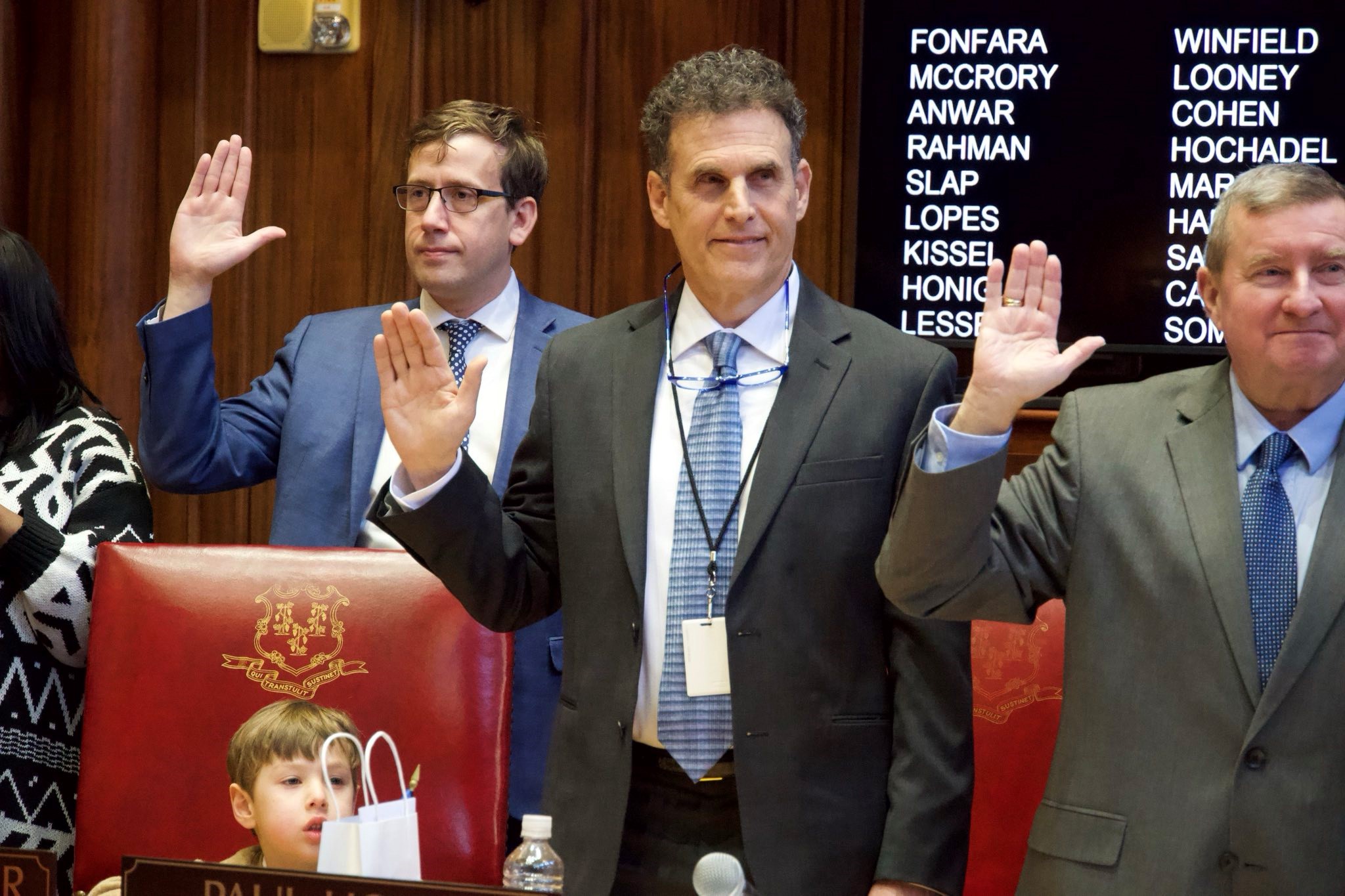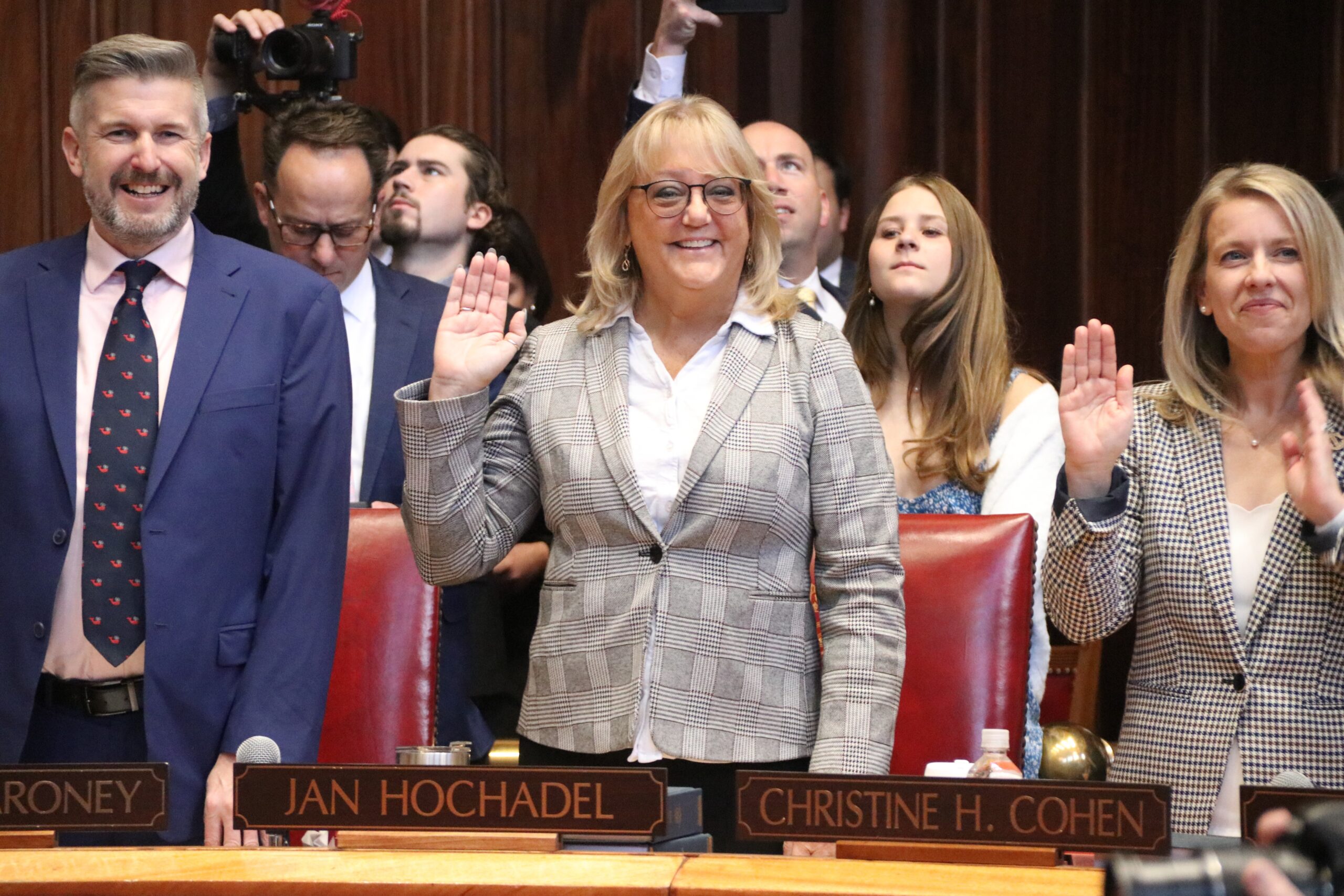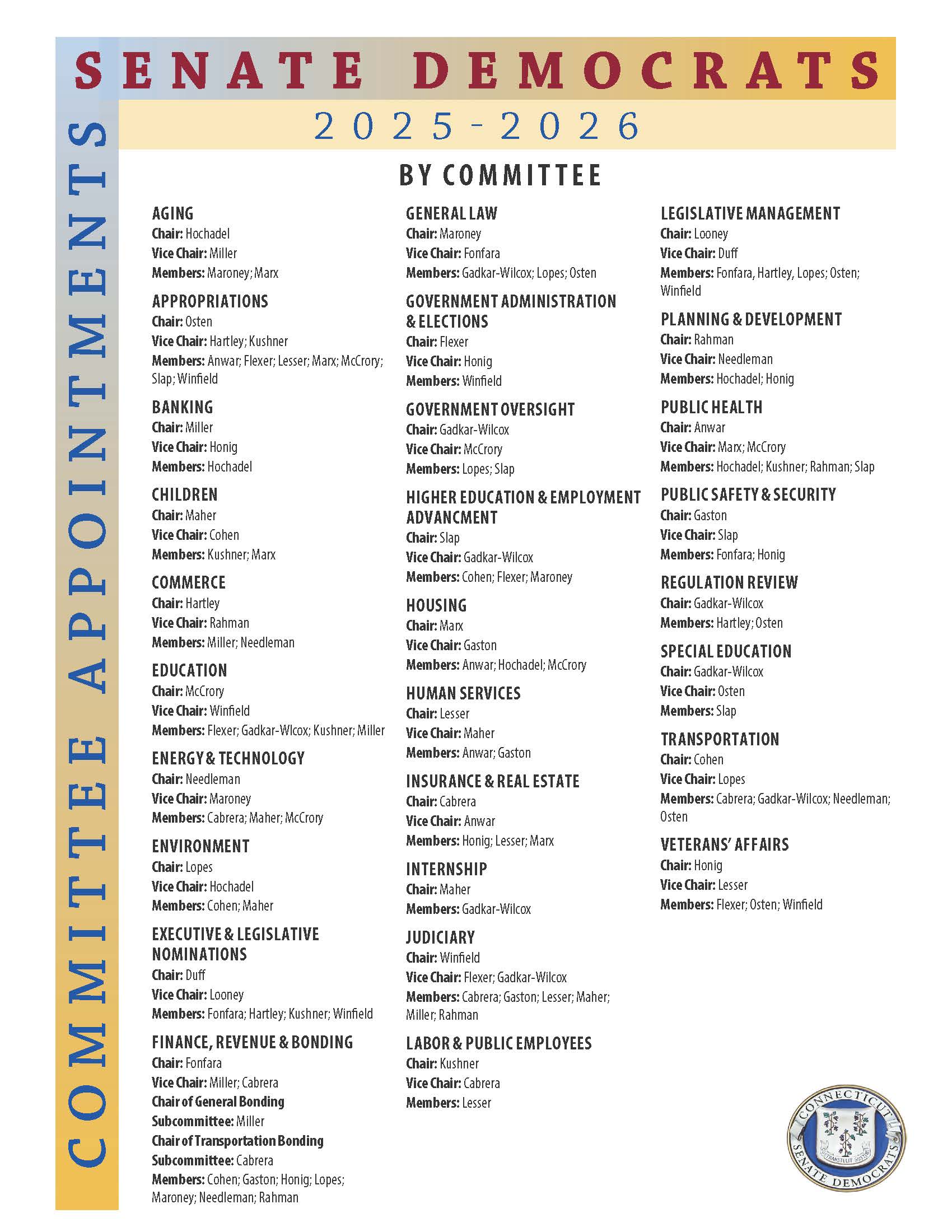State Legislature Begins Session with Historic Democratic Majorities
By Hugh McQuaid
January 8 @ 2:30 pm

Backed by expanded Democratic majorities in both the House and Senate, the General Assembly began its 2025 legislative session Wednesday, kicking off a five-month effort to craft new laws and a two-year budget to fund critical services for Connecticut residents.
The legislature’s opening day signals the start of its annual session, which runs from January to June in odd-numbered years. The day was marked by fresh starts and ceremonies as new and returning legislators took the oath of office, beginning new terms at the state Capitol building in Hartford.
As of Wednesday, Democrats outnumbered Republicans by 25 to 10 in the Senate and 101 to 49 in the House. The party’s majority in the Senate represented the third-largest Senate Democratic Caucus in nearly four decades.
Senate leaders said they were honored to have earned the trust of voters, who awarded Democrats a historic mandate on Election Day. During his remarks, Senate President Pro Tempore Martin Looney said the people of Connecticut had sent a resounding message at the polls.
“They entrusted Democrats with the largest majority in the State Senate in 38 years—a mandate as historic as it is humbling,” Looney said. “This overwhelming support is a testament to the tangible results of our governance. Our policies have strengthened Connecticut’s economy, expanded access to quality healthcare, enhanced educational opportunities, and addressed the pressing challenges of our time—from climate change to public safety.”
Among the Senate Democrats who took the oath of office Wednesday were two new members: Sen. Sujata Gadkar-Wilcox of Trumbull, who was elected to represent a district previously served by retired Sen. Marilyn Moore, and Sen. Paul Honig of Harwinton. Honig, a retired finance executive, is the first Democrat to represent the state’s 8th Senate District in more than five decades.
Honig said it was a privilege to bring a fresh approach to representing his home communities.
“Connecticut is a great place to live and raise a family, but there’s more we can do to make our state affordable and I’m excited to get to work, delivering meaningful results for the people of the 8th District,” he said.
After convening the session in their respective chambers, legislators from both the House and Senate crowded into the House Chamber on the second floor of the state Capitol to hear an annual State of the State address from Gov. Ned Lamont.
The governor said state policymakers would focus this session on building on the progress Connecticut had made over the last several years. He stressed the importance of working to bring down the cost of living by addressing the affordability of expenses like health care and energy.
“Always, our north stars will be affordability and opportunity,” Lamont said, “holding down the costs of energy and education, allowing you to keep more of what you earn and providing you the tools you need to earn more, to buy a home, to start a business.”
In addition to negotiating a two-year state budget and tackling affordability issues, legislative leaders created a new committee to oversee government operations. The new panel, called the Government Oversight Committee, will be led by Gadkar-Wilcox and Rep. Lucy Dathan, D-New Canaan.
Looney said the Connecticut Senate would also be ready to address a wide range of issues during the coming session, including regulating the rapid evolution of artificial intelligence, the growing dissemination of misinformation, and the potential for massive cuts in federal funding under the incoming Trump administration.
He urged senators to think creatively and meet those challenges with wisdom and compassion.
“Let us continue to build a state that believes in human potential, honors every generous dream, and dismisses no one as unworthy,” Looney said.










